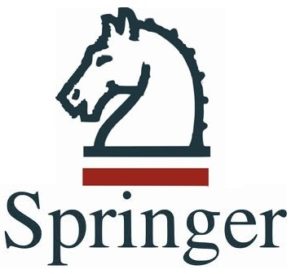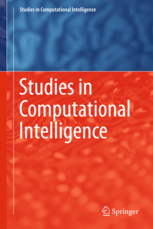Call for Book Chapters
Integrating meta-heuristics and machine learning for real-world optimization problems
To be published by Studies in Computational Intelligence by Springer http://www.springer.com/series/7092
Introduction
In recent years, metaheuristics (MHs) have become essential tools for solving challenging optimization problems encountered in industry, engineering, biomedical, image processing, and the theoretical field. Several different metaheuristics exist, and new methods are under constant development. One of the most fundamental principles in our world is the search for an optimal state. Therefore, choose the right, and correct solution technique for an optimization problem can be crucially important in finding the right solutions for a given optimization problem (unconstrained and constrained optimization problems). There exist a diverse range of MHs for optimization. Optimization techniques have been used for many years in the formulation and solution of computational problems.
This book brings together outstanding research and recent developments in metaheuristics (MHs), machine learning (ML), and their applications in the industrial world. Among the subjects to be considered are theoretical developments in MHs; performance comparisons of MHs; suitable methods combining different types of approaches such as constraint programming and mathematical programming techniques; parallel and distributed MHs for multi-objective optimization; adaptation of discrete MHs to continuous optimization; dynamic optimization; software implementations; and real-life applications. Besides, Machine learning (ML) is a data analytics technique to use computational methods. Therefore, recently, MHs have been combined with several ML techniques to deal with different global and engineering optimization problems, also real-world applications. Finding an optimal solution or even sub-optimal solutions is not an easy task. Chapters published in this book describe original works in different topics in science and engineering, such as Metaheuristics, Machine learning, Soft Computing, Neural Networks, Multi-criteria decision-making, and energy efficiency, sustainable development, etc.
Before digging deeper into the matter, we will attempt to classify these algorithms as an overview and discuss some basic use cases. In this book, a classification of Metaheuristic algorithms and a rough taxonomy of global optimization methods were presented. Generally, optimization algorithms can be divided into two basic classes: deterministic and probabilistic algorithms. We will briefly introduce optimization algorithms such as particle swarm optimization, harmony search, firefly algorithm, and cuckoo search. It also presents a variety of solution techniques for optimization problems, emphasizing concepts rather than rigorous mathematical details and proofs.
IMPORTANT: The books of this series are submitted to indexing to Web of Science, EI-Compendex, DBLP, SCOPUS, Google Scholar, and Springerlink.
Chapter Submission
Submitted manuscripts should conform to the standard guidelines of Springer’s book chapter format. Manuscripts must be prepared using Latex or Word according to Springer’s template that can be downloaded from the (link). Manuscripts that do not follow the formatting rules will be ignored. Prospective authors should send their manuscripts electronically by easychair system in PDF. Submitted manuscripts will be refereed by at least two independent and expert reviewers for quality, correctness, originality, and relevance. The accepted contributions will be published in Intelligent Systems Reference Library by Springer. More information about Intelligent Systems Reference Library can be found (here).
Link for submission
The submission Web page for IMHMLRW2021 is
https://easychair.org/conferen
Publication Schedule
The tentative schedule of the book publication is as follows:
Deadline for paper submission: A̵u̵g̵u̵s̵t̵ ̵3̵1̵,̵ ̵2̵0̵2̵1̵ November 30, 2021
First-round notification: S̵e̵p̵t̵e̵m̵b̵e̵r̵ ̵2̵0̵2̵1̵ December 2021
Camera-ready submission: O̵c̵t̵o̵b̵e̵r̵ ̵2̵0̵2̵1̵ January 2022
Publication date: 1st quarter of 2022



Dr. Diego Oliva
Universidad de Guadalajara, CUCEI, México
